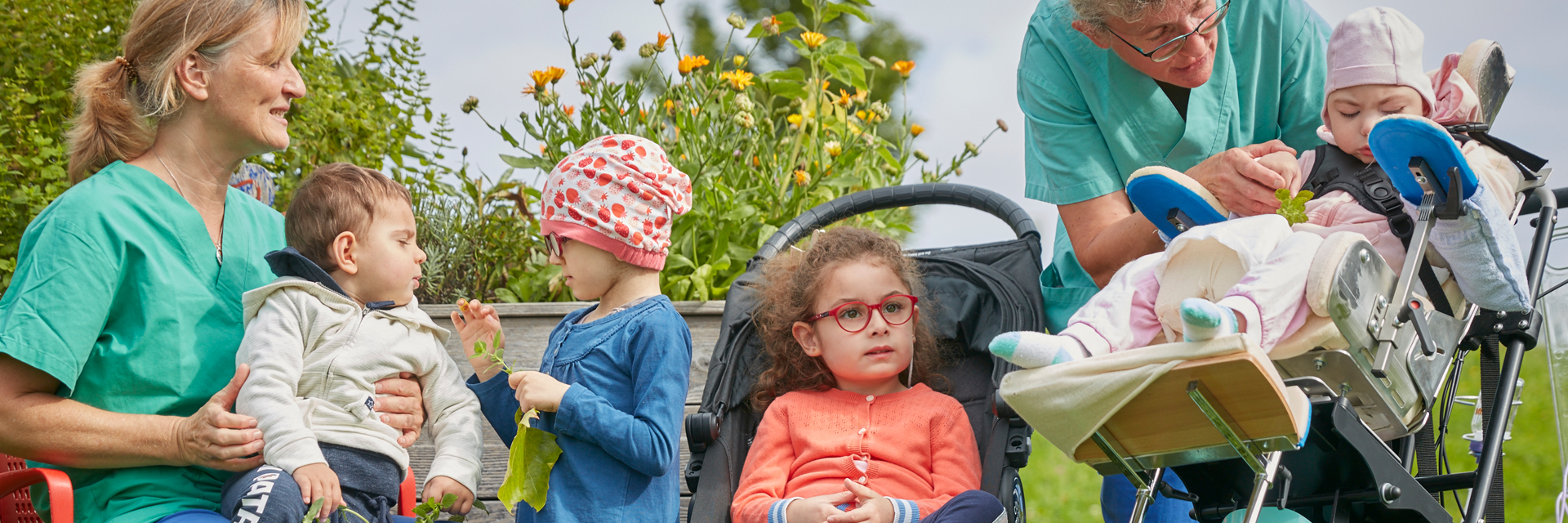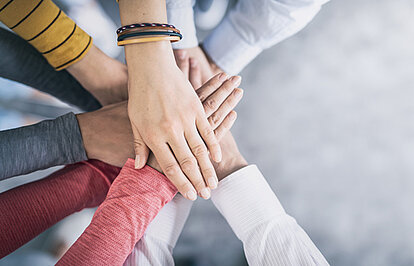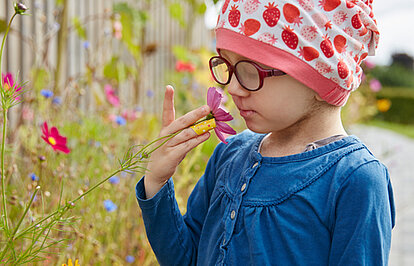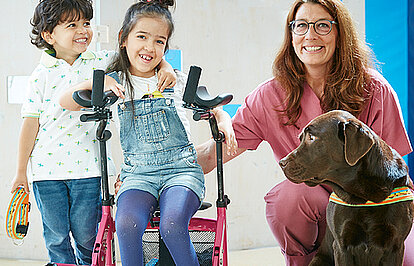
Actions
You want to know how donations are used
Your donation is used in a variety of ways at the Children's Hospital Schömberg and goes directly to the patients.
For example, a small donation can buy washable playing cards, CDs with children's songs or a small cuddly toy that the child can keep. For a medium donation we can buy a CD player. Larger and large donations make it possible to purchase such things as aids for testing and use during treatment or innovative therapy equipment. Larger projects can also be realised through many small donations.

Running for the children's hospital
For almost 20 years, friends, patients' relatives and staff have been competing as Team Children`s Hospital Schömberg at running events in the region to represent the Children`s Hospital Schömberg.
It all started with the Holger Nothacker memorial run. Since 2004, organiser Michael Nothacker has donated the entry fees for this event to the Children`s Hospital Schömberg . At that time, the Children`s Hospital Schömberg team was founded and has been running ever since, changing in size and composition. The team is a colourful mix and unites casual athletes, ambitious recreational athletes and potential winning runners from 8 to 80 years of age.
Until 2019, the running events were accompanied by small and larger patients in their wheelchairs, who cheered from the edge of the course and were pushed through the finish line with them. During the pandemic, many small runs were held "corona-compliant" without an audience. After the restrictions of the last two years, we finally hope to be back with our patients at some of the runs this year.
In the meantime, several other organisers of such running events in the region have also joined the good cause, so that every year four-digit amounts are collected, which are mostly used to purchase therapy equipment.
We thank Michael Nothacker and all the other participants for their great commitment and look forward to continuing to run together for the clinic in the future.

Glove helps to grasp
Having fun with modern high-performance technology while practising your gripping ability is exactly what you can use to make therapy tesing to children these days, and not just children.
In a mix of real hand activity and immediate feedback via special effects generated in parallel on a screen, the strength and flexibility exercises immediately become much easier to 'get off the hand'.
Between many new suppliers, the paediatric clinic has chosen the so-called "Smart Glove" from the company Neofect. The generous donation from the company Julius Pfisterer GmbH & Co KG has made it possible for us to purchase this highly functional and innovative therapy device.
We would like to thank all those involved for enabling us to expand our range of therapies.

Walking aid for non-ambulatory patients
The purchase of this gait trainer is a good example of how personal commitment and a company's willingness to donate can help to open up opportunities for children who are unable to walk to get around.
The father of a patient who was treated with such a device in the paediatric clinic had suggested to his employer that the usual Christmas donation be given to the paediatric clinic for such a device.
With the generous support of the company Uniserv GmbH, it was possible to purchase a so-called "Grillo" from the company Ormesa.
We are using the gait trainer here to test with patients whether a supply of gait trainer helps them to take steps independently and thus participate better in the daily life of their families. We would like to thank everyone involved for the good communication and the smooth running of this project. Now the device is available here and has already been tried out in several cases. This approach is also beneficial for the health insurance companies, as it helps to avoid incorrect care.




